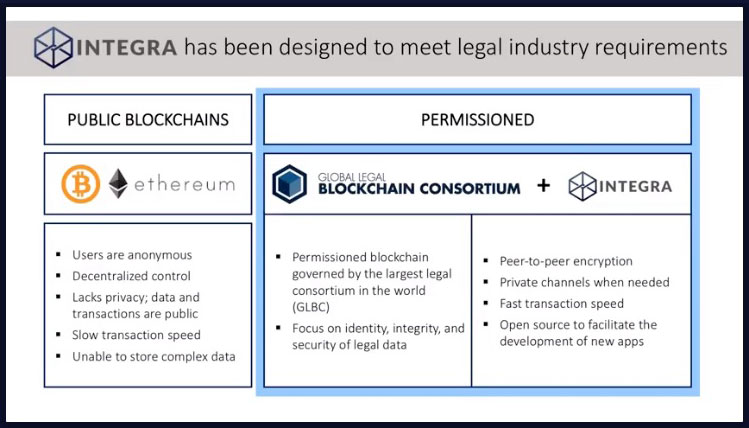The legal industry is starting to notice the effects of new blockchain technologies. Companies that offer traditional legal services are exploring ways to integrate blockchain tech into their business applications. In the meantime, lawyers are starting to use blockchain-based protocols to create and manage legal documents.
An article from CoinCentral, How Blockchain and Law Can Work Together, by Sarah Rothrie, provides some examples of how blockchain will change the legal industry. The blockchain services include:
- Proof of service – uses digital tags to track service documents and supplies verifiable proof of delivery.
- Chain of custody – traces the movements of items and provides a reliable trail to prevent tampering.
- Intellectual property – creates a record of a registration and licensing of all rights.
- Notarization – authenticates transactions with biometric data.
- Smart document – allows parties to embed transactions related to an agreement into the document.
Blockchain for Lawyers
Lawyers are using blockchain for managing legal documents. Two emerging platforms, OpenLaw and Integra, allow lawyers to integrate blockchain tech into their law practices.
OpenLaw links the concepts of traditional legal agreements with blockchain-based smart contracts. This open-source platform uses the Ethereum blockchain. The platform provides a legally compliant ecosystem that is user-friendly for lawyers.
Using OpenLaw, lawyers can access templates for legal documents or create templates using a markup language. Once all of the parties digitally sign the agreement, a cryptographic hash of the agreement is recorded to the blockchain.
Integra uses a permissioned blockchain platform that focuses on the integrity and security of legal data. This platform uses the open source Hyperledger Fabric blockchain, and the host is the IBM Blockchain Platform. As reported by MintDice, IBM has made significant investments in blockchain development. As a winning strategy, IBM made several bold moves with enterprise payment solutions that established dominance in the cryptocurrency industry.
Integra promotes its platform as a “blockchain for law” and receives guidance from the Global Legal Blockchain Consortium (GLBC). The GLBC collaborates with organizations to develop blockchain technologies. Thomson Reuters, a GLBC member, announced an enhancement to its Contract Express application with Integra Ledger by using blockchain IDs to transform documents into “smart documents.”


